| |
| |
-
EDUC 4250 - Second Language Acquisition: Theories and Implementation Credits: (3)
Typically taught:
Fall [Full Sem]
This course explores second language acquisition processes, current theories, and effective strategies as a knowledge base in planning appropriate curriculum and instruction for English language learners.
|
| |
-
EDUC 4270 - Literacy Strategies for Teaching English Language Learners Credits: (3)
Typically taught:
Spring [Full Sem]
This course will examine literacy strategies for English Language Learners. Teacher candidates will learn how to apply literacy strategies to teach reading, writing, listening and speaking skills, while including culture, to scaffold language development in both the second language and mainstream classrooms.
|
| |
-
EDUC 4300 - Elementary Mathematics Methods Credits: (3)
Typically taught:
Fall [Full Sem]
Spring [Full Sem]
This course includes the study of mathematics methods appropriate for elementary school curriculum with specific emphasis on developmental strategies including the concrete-representational-abstract instructional model. Connections to other subject areas, problem solving, critical thinking skills and real-life situations are stressed. Prerequisite: Completion of Elementary Education Level 2 courses with a grade of B- or better. This course is part of Elementary Education Level 3 and should be taken with EDUC 3115 , EDUC 3280 , EDUC 4210 , EDUC 4320 , EDUC 4330 .
|
| |
-
EDUC 4310 - Foundations of Cooperative Learning Credits: (2)
This course examines the rational, principles, skills and interaction strategies necessary before implementing Cooperative Learning in the classroom. Emphasis will be upon the basic components of Cooperative Learning, team building, and simple teamwork. Methods and strategies will be demonstrated and will involve active student group participation.
|
| |
-
EDUC 4320 - Elementary Language Arts Methods Credits: (3)
Typically taught:
Fall [Full Sem]
Spring [Full Sem]
This course focuses on methods for language arts instruction in the elementary setting with specific emphasis on writing strategies. Particular emphasis is given to models of research-based instruction of core curriculum in language art. Prerequisite: Completion of Elementary Education Level 2 courses with a grade of B- or better. This course is part of Elementary Education Level 3 and should be taken with EDUC 3115 , EDUC 3280 , EDUC 4210 , EDUC 4300 , EDUC 4330 .
|
| |
-
EDUC 4330 - Elementary Science Methods Credits: (3)
Typically taught:
Fall [Full Sem]
Spring [Full Sem]
This course focuses on methods and materials for teaching hands-on guided discovery science with an emphasis on concepts included in the Utah core curriculum. Prerequisite: Completion of Elementary Education Level 2 courses with a grade of B- or better. This course is part of Elementary Education Level 3 and should be taken with EDUC 3115 , EDUC 3280 , EDUC 4210 , EDUC 4300 , EDUC 4320 .
|
| |
-
EDUC 4345 - Elementary Integrated Arts Methods Credits: (3)
Typically taught:
Fall [Full Sem]
Spring [Full Sem]
This course is designed to prepare students to successfully teach art and music in the elementary classroom. Students are expected to design, prepare and teach lessons to engage elementary students in art and music activities. Prerequisite: Admission to Teacher Education. Completion of Elementary Education Level 1 courses with a grade of B- or better. This course is part of Elementary Education Level 2 and should be taken with EDUC 3100 , EDUC 3210 , EDUC 3240 , PEP 3620 .
|
| |
-
EDUC 4380 - Student Teaching in Elementary Education Credits: (4)
Typically taught:
Fall [Full Sem]
Spring [Full Sem]
Student teaching experience in elementary public school setting plus weekly seminar on campus. Offered CR/NC only. Prerequisite: EDUC Level 3 (EDUC 3115 , EDUC 3280 , EDUC 4210 , EDUC 4300 , EDUC 4320 , EDUC 4330 ) and permission of Field Experience Director. Can be repeated one time. Should be taken concurrently with EDUC 4950 the first time.
|
| |
-
EDUC 4415 - Content-Based Second Language Curriculum, Instruction and Assessment Credits: (3)
Participants in this course learn to plan curriculum and instruction for dual language and immersion classrooms that combine language and content goals using standards-based and backwards design approaches. They also learn a range of classroom-based strategies for assessing language and content.
|
| |
-
EDUC 4420 - Foundations of Education of the Gifted Credits: (2)
Typically taught:
(not currently taught)
An overview of education for the gifted and talented; historical and philosophical background; characteristics, needs, and developmental patterns of the gifted; issues in identification, differentiating curriculum, and educational program options; special populations of gifted students.
|
| |
-
EDUC 4450 - Creativity and Applied Imagination in the K-12 Classroom Credits: (2)
Typically taught:
(not currently taught)
Exploration and development of readily available personal and community resources to encourage creative thinking, classroom involvement, and transfer of learning.
|
| |
-
EDUC 4470 - Teaching for Thinking Credits: (2)
Typically taught:
(not currently taught)
Theory and practice for teaching thinking skills in elementary, middle, and high school classrooms. Prerequisite: Admission to Teacher Education and EDUC 3140 or equivalent.
|
| |
-
EDUC 4480 - Differentiated Curriculum for the Gifted and Talented Credits: (3)
Typically taught:
(not currently taught)
Curriculum theories and educational strategies for educating gifted and talented students. A practical course, with special attention to the development of instructional materials appropriate for use by gifted students in special programs as well as in the regular classroom.
|
| |
-
EDUC 4490 - Assessment and Evaluation in Education of the Gifted Credits: (3)
Typically taught:
(not currently taught)
Principles of assessment applied to: identification of gifted and talented students including identification of gifted in minority populations, diagnosis of student learning needs, learning styles, evaluation of student progress, and evaluation of program effectiveness.
|
| |
-
EDUC 4510 - Foundations in Special Education Practice and Law Credits: (3)
Typically taught:
Fall [Full Sem]
This course will introduce students to the philosophical, historical, legal and ethical foundations of special education. Students will examine in depth the characteristics of exceptional learners. Prerequisite: Admission to Teacher Education, EDUC 2010 .
|
| |
-
EDUC 4515 - Special Education Law and Practice Credits: (3)
Typically taught:
Fall [Full Sem]
Spring [Full Sem]
This course provides students with a broad knowledge and understanding of a wide range of legal issues concerning the provision of special education services to students with disabilities. A review of pertinent legislation concerning human and constitutional rights related to persons with disabilities will be addressed. Teachers’ specific responsibilities and liabilities are described and related to current requirements for development of appropriate educational programs. Prerequisite: Admission to Teacher Education. Co-Requisite: This course is part of Special Education Block 2 courses and should be taken with EDUC 3545 , EDUC 3565 , EDUC 3575 , EDUC 4521 , EDUC 4530 .
|
| |
-
EDUC 4520 - Collaboration, Consultation, and IEP Development Credits: (3)
Typically taught:
Fall [Full Sem]
Roles of the special educator and families. IEP development, Least Restrictive environment, managing multidisciplinary team activities and techniques of collaboration and consultation. Prerequisite: Admission to Teacher Education.
|
| |
-
EDUC 4521 - Practicum in Special Education Credits: (2)
Typically taught:
Fall [Full Sem]
Spring [Full Sem]
This Practicum experience will focus on a) assessment, b) behavior management, and c) mathematics instruction in a field-based experience. Students will be introduced to the IEP process and will practice developing collaborative relationships within school settings. Prerequisite: Completion of Special Education Block 1 Foundation courses with a grade of B- or better. Co-Requisite: This course is part of Special Education Block 2 courses and should be taken with EDUC 3545 , EDUC 3565 , EDUC 3575 , EDUC 4515 , EDUC 4530 .
|
| |
-
EDUC 4530 - Principles and Applications of Special Education Assessment Credits: (3)
Typically taught:
Fall [Full Sem]
Spring [Full Sem]
Administer, score, and interpret norm-referenced assessments instruments, analyze in combination with data from other assessment processes, and use to determine eligibility and develop educational programs. Requires passing Block 1 with a B- or better. This course is part of Special Education Block 3 courses and should be taken with EDUC 4545 , EDUC 4565 , EDUC 4575 , EDUC 4580 .
|
| |
-
EDUC 4540 - Managing Student Behavior Credits: (3)
Typically taught:
Fall [Full Sem]
Spring [Full Sem]
Current issues, practices, and application of a variety of approaches for behavior change, discipline and management of the classroom environment, and the teaching of appropriate social skills. This course is part of Special Education Block 1 courses and should be taken with EDUC 4521 , EDUC 4530 , EDUC 4550 , EDUC 4560 .
|
| |
-
EDUC 4545 - Individualized Behavioral Strategies using Applied Behavior Analysis Credits: (2)
Typically taught:
Fall [Full Sem]
This course is designed to teach teacher candidates validated individual behavioral intervention strategies, particularly those designed to meet the needs of students with severe behavioral and social skill deficits. This course will address the needs of those candidates using Applied Behavior Analysis. Candidates will conduct functional assessments and write and implement a function-based behavior intervention plan. Prerequisite: Completion of Education Level 2 courses with a grade of B- or better. Co-Requisite: This course is part of Special Education Block 3 Advanced Methods and should be taken with EDUC 4565 , EDUC 4575 , EDUC 4580 , EDUC 4582 .
|
| |
-
EDUC 4550 - Instructional Planning and Learning Environments for Special Education Students Credits: (3)
Typically taught:
Fall [Full Sem]
Spring [Full Sem]
Instructional programming and modification of curriculum for students with disabilities served by teachers with Mild/Moderate Endorsements. Prerequisite: Admission to Teacher Education. This course is part of Special Education Block 2 Integrated Methods courses and should be taken with EDUC 3545 , EDUC 3565 , EDUC 3575 , EDUC 4515 , EDUC 4521 .
|
| |
-
EDUC 4555 - Validated Instructional Methods: Reading Credits: (3)
Typically taught:
Fall [Full Sem]
Spring [Full Sem]
This course is designed to introduce principles and validated strategies for teaching reading to students with mild/moderate disabilities. The course will cover student characteristics and school setting demands that contribute to lack of success in reading. Prerequisite: Completion of Special Education Block 2 Integrated Methods courses with a grade of B- or better. This course is part of Special Education Block 3 Advanced Methods courses and should be taken with EDUC 4570 , EDUC 4580 , EDUC 4581 .
|
| |
-
EDUC 4560 - Validated Instructional Methods: Mathematics Credits: (3)
Typically taught:
Fall [Full Sem]
Spring [Full Sem]
This course is designed to introduce principles and techniques for diagnosis and remediation of mathematics problems. The course will cover student characteristics and school setting demands that contribute to lack of success in mathematics classrooms. Prerequisite: Completion of Special Education Block 1 Foundation courses with a grade of B- or better. This course is part of Special Education Block 2 Integrated Methods courses and should be taken with EDUC 4521 , EDUC 4530 , EDUC 4540 , EDUC 4550 .
|
| |
-
EDUC 4565 - Secondary English Language Arts: Evaluation, Remediation and Supports Credits: (2)
Typically taught:
Fall [Full Sem]
This course is designed to teach teacher candidates validated evaluation and remediation strategies for 6-12 students struggling in English Language Arts, focusing on techniques in secondary reading, writing, speaking, listening, and language. Candidates will be introduced to the process of identifying reading and writing difficulties, selecting evidence-based interventions, implementing instruction, and using the data-based instructional decision model to monitor students’ ELA progress and intervention effectiveness. Prerequisite: Completion of Education Level 2 courses with a grade of B- or better. Co-Requisite: This course is part of Special Education Block 3 Advanced Methods and should be taken with EDUC 4545 , EDUC 4575 , EDUC 4580 , EDUC 4582 .
|
| |
-
EDUC 4570 - Validated Instructional Methods: Written Expression Credits: (3)
Typically taught:
Fall [Full Sem]
Spring [Full Sem]
This course is designed to introduce principles and validated strategies for teaching written expression to students with mild/moderate disabilities. The course will cover student characteristics and school setting demands that contribute to lack of success in written expression. Prerequisite: EDUC 4530 . Co-Requisite: EDUC 4581 . This course is part of Special Education Block 3 Advanced Methods courses and should be taken with EDUC 4555 , EDUC 4580 , EDUC 4581 .
|
| |
-
EDUC 4575 - Secondary Mathematics: Evaluation, Remediation and Supports Credits: (2)
Typically taught:
Fall [Full Sem]
This course is designed to teach teacher candidates validated evaluation and remediation strategies for students in grades 6-12 struggling in mathematics. This course focuses on techniques in secondary mathematics. Candidates will be introduced to the process of identifying math difficulties, selecting evidence based interventions, implementing instruction, and using the data-based instructional decision model to monitor students’ math progress and intervention effectiveness. Prerequisite: Completion of Education Level 2 courses with a grade of B- or better. Co-Requisite: This course is part of Special Education Block 3 Advanced Methods and should be taken with EDUC 4545 , EDUC 4565 , EDUC 4580 , EDUC 4582 .
|
| |
-
EDUC 4580 - Learning Strategies and Transition for Special Education Students Credits: (3)
Typically taught:
Fall [Full Sem]
Spring [Full Sem]
Instructional programming and modification of curriculum for students with disabilities served by teachers with Mild/Moderate Endorsements. Prerequisite: Completion of Special Education Block 2 Integrated Methods courses with a grade of B- or better. This course is part of Special Education Block 3 Advanced Methods and should be taken with EDUC 4545 , EDUC 4565 , EDUC 4575 , EDUC 4582 .
|
| |
-
EDUC 4581 - Pre-Student Teaching in Special Education: Assessment, Behavior Management, Instruction Credits: (4)
Typically taught:
Fall [Full Sem]
Spring [Full Sem]
The purpose of Pre-Student Teaching is to continue field experience in a supportive and professional manner. The student will have the opportunity to experience teaching and the responsibilities that it entails under the direct guidance of the Cooperating Teacher and the Course Instructor. This course is designed to provide students with practical experiences in the areas of: a) literacy curriculum and instruction for students K-12, and (b) planning and developing post secondary transition plans. Practical experience in assessment and behavior management are continued. Prerequisite: Completion of Special Education Block 2 Integrated Methods courses with a grade of B- or better. This course is part of Special Education Block 3 Advanced Methods courses and should be taken with EDUC 4555 , EDUC 4570 , EDUC 4580 .
|
| |
-
EDUC 4582 - Special Education Level III Practicum Credits: (3)
Typically taught:
Fall [Full Sem]
The purpose of this practicum is to provide teacher candidates with opportunities to implement content-specific instruction and demonstrate quality instruction while working in secondary special education classrooms. Prerequisite: Completion of Education Level 2 courses with a grade of B- or better. Co-Requisite: This course is part of Special Education Block 3 Advanced Methods and should be taken with EDUC 4545 , EDUC 4565 , EDUC 4575 , EDUC 4580 .
|
| |
-
EDUC 4640 - Validated Instructional Methods: Mathematics Credits: (3)
Typically taught:
Fall [Full Sem]
Spring [Full Sem]
This course is designed to introduce principles and techniques for diagnosis and remediation of mathematics problems. The course will cover student characteristics and school setting demands that contribute to lack of success in mathematics classrooms.
|
| |
-
EDUC 4650 - Validated Instructional Methods: Reading Credits: (4)
Typically taught:
Fall [Full Sem]
Spring [Full Sem]
This course is designed to introduce principles and validated strategies for teaching reading to students with mild/moderate disabilities. The course will cover student characteristics and school setting demands that contribute to lack of success in reading.
|
| |
-
EDUC 4660 - Validated Instructional Methods: Written Expression Credits: (4)
Typically taught:
Fall [Full Sem]
Spring [Full Sem]
This course is designed to introduce principles and validated strategies for teaching written expression to students with mild/moderate disabilities. The course will cover student characteristics and school setting demands that contribute to lack of success in written expression.
|
| |
-
EDUC 4670 - Special Education Student Teaching Credits: (4)
Typically taught:
Fall [Full Sem]
Spring [Full Sem]
Supervised teaching in selected special education programs in an elementary or secondary school. Available on a CR/NC basis only. Prerequisite: successful completion of mild/moderate licensure course work and permission of the Field Experience Director. Can be repeated one time. Should be taken concurrently with EDUC 4686 the first time.
|
| |
-
EDUC 4680 - Special Education Student Teaching Credits: (8)
Typically taught:
Fall [Full Sem]
Spring [Full Sem]
Supervised clinical practice in an elementary or secondary school at which candidates teach pupils with mild/moderate disabilities. Available on a CR/NC basis only. Prerequisite: Successful completion of Special Education major requirements, EDUC 4581 , EDUC 4570 with B- or above. Must be taken concurrently with EDUC 4686 .
|
| |
-
EDUC 4685 - Special Education Student Teaching Seminar and Synthesis Credits: (1)
Typically taught:
Non-majors
The Seminar and Synthesis will support student teaching through regular meetings. Prerequisite: Successful completion of Special Education Licensure requirements. Must be taken concurrently with EDUC 4670 .
|
| |
-
EDUC 4686 - Special Education Student Teaching Seminar & Synthesis for Special Education Majors Credits: (4)
Typically taught:
Fall [Full Sem]
Spring [Full Sem]
The Seminar and Synthesis will support student teaching through regular meetings on campus. Co-Requisite: EDUC 4680 .
|
| |
-
EDUC 4700 - Learning in the Schools Credits: (2)
Principles of learning and management and their application to the school situation. Prerequisite: Student teaching.
|
| |
-
EDUC 4740 - Building School Partnerships with ESL/Bilingual Families Credits: (1)
Typically taught:
Spring [Full Sem]
Summer [Full Sem]
This course prepares students to be advocates and practitioners of family involvement in education. Goals and benefits of family involvement will be explored along with specific strategies for developing a partnership within the education system. Components of family structure, economics, cultural diversity, second-language learners, communication skills and resources are integrated into the student experience.
|
| |
-
EDUC 4820E - Managing Diverse Classrooms Credits: (3)
Typically taught:
(not currently taught)
Current issues, methodology and application of a variety of approaches for behavioral change, discipline and management of diverse learners in the context of classroom environments. Prerequisite: Teacher Education Level 3 Elementary (EDUC 4300 , EDUC 4320 or EDUC 4350 if previously taken, EDUC 4330 , EDUC 4345 ). Should be taken concurrently with the other courses in Teacher Education Level 4 Elementary (EDUC 4840 , EDUC 4860 ).
|
| |
-
EDUC 4820S - Managing Diverse Classrooms Credits: (3)
Typically taught:
(not currently taught)
Current issues, methodology and application of a variety of approaches for behavioral change, discipline and management of diverse learners in the context of classroom environments. Prerequisite: Secondary Teacher Education Core (EDUC 3220 , EDUC 3900 , and EDUC 3935 ).
|
| |
-
EDUC 4830 - Individually Prescribed Program Credits: (1-6)
Typically taught:
Fall [Full Sem]
Spring [Full Sem]
Designed primarily for individual needs. May be repeated up to 6 credit hours.
|
| |
-
EDUC 4840 - Student Teaching in Elementary Education Credits: (8)
Typically taught:
Fall [Full Sem]
Spring [Full Sem]
Student teaching experience in a public school to synthesize theory and practice. Support seminars held on campus. Available on a CR/NC basis only. Prerequisite: EDUC Level 3 (EDUC 3115 , EDUC 3280 , EDUC 4210 , EDUC 4300 , EDUC 4320 , EDUC 4330 ) and permission of the Field Experience Directror. Should be taken concurrently with EDUC 4850 .
|
| |
-
EDUC 4850 - Integrated Elementary Education Student Teaching Seminar and Synthesis Credits: (4)
Typically taught:
Fall [Full Sem]
Spring [Full Sem]
This course will help prepare teacher candidates for student teaching and ultimately licensure with two different types of activities. First, are weekly, 3-hour collaboration and topical seminars emphasizing on-going discussions and support on classroom management, preparing the TWS and INTASC portfolio, creating your career file, and other education issues. Second, is a two-day workshop to synthesize the semester and have your INTASC portfolio assessed. Prerequisite: EDUC 4300 , EDUC 4320 , EDUC 4330 , and EDUC 4345 . (Should be taken concurrently with EDUC 4840 .)
|
| |
-
EDUC 4860 - Elementary Senior Synthesis Seminar Credits: (1)
Typically taught:
(not currently taught)
Synthesis of the TREC model for elementary programs with specific emphasis on beginning a professional career in teaching. Senior project is required. To be taken for CR/NC only. Prerequisite: Teacher Education Level 3 Elementary (EDUC 4300 , EDUC 4320 or EDUC 4350 if previously taken, EDUC 4330 , EDUC 4345 ). Should be taken concurrently with the other courses in Teacher Education Level 4 Elementary (EDUC 4820E , EDUC 4840 ).
|
| |
-
EDUC 4870 - Directed Experiences with Students Credits: (1)
Typically taught:
Fall [Full Sem]
Spring [Full Sem]
Directed experiences with elementary and secondary school students in cooperating schools. Students may register for one unit of credit per semester for a maximum of three semester hours.
|
| |
-
EDUC 4890 - Cooperative Work Experience Credits: (1-6)
Typically taught:
Fall [Full Sem]
Spring [Full Sem]
For students accepted to the Teacher Education Program who meet the minimum cooperative work experience requirements of the department. Provides academic credit for on-the-job experience. Amount of credit will be determined by the department. Fingerprinting/background check must be completed prior to working in the schools. May be repeated up to 6 credit hours.
|
| |
-
EDUC 4920 - Short Courses, Workshops, Institutes and Special Programs Credits: (1-6)
Typically taught:
Consult the semester class schedule for the current offering under this number.
The specific title and credit authorized will appear on the student transcript. Available on CR/NC basis. May be repeated up to 6 credit hours.
|
| |
-
EDUC 4930 - Student Teaching in Secondary Education Credits: (4)
Typically taught:
Fall [Full Sem]
Spring [Full Sem]
Student teaching experience in secondary public school setting plus weekly seminar on campus. Offered CR/NC only. Prerequisite: Secondary Teacher Education Core (EDUC 3220 , EDUC 3265 , EDUC 3315 , EDUC 3900 , EDUC 3910 , EDUC 3935 ) and permission of the Field Experience Director. Can be repeated one time. Should be taken concurrently with EDUC 4950 the first time.
|
| |
-
EDUC 4940 - Student Teaching in Secondary Education Credits: (8)
Typically taught:
Fall [Full Sem]
Spring [Full Sem]
Student teaching experience in a public school to synthesize theory and practice. Support seminars held on campus. Available on a CR/NC basis only. Prerequisite: Secondary Teacher Education Core (EDUC 3220 , EDUC 3265 , EDUC 3315 , EDUC 3900 , EDUC 3910 , EDUC 3935 ). Should be taken concurrently with EDUC 4950 Integrated Secondary Student Teaching Seminar.
|
| |
-
EDUC 4950 - Integrated Secondary Student Teaching Seminar Credits: (4)
Typically taught:
Fall [Full Sem]
Spring [Full Sem]
Preparation and support for secondary clinical practice. Collaborative and topical seminars will emphasize on-going discussions and support on classroom management, ethics, preparing the TWS and INTASC portfolio, creating a career file, and secondary school issues. Prerequisite: Completion of Secondary Teacher Education Core (EDUC 3220 , EDUC 3265 , EDUC 3315 , EDUC 3900 , EDUC 3910 , EDUC 3935 ). Should be taken concurrently with Student Teaching in Secondary Education (EDUC 4930 or EDUC 4940 ).
|
| |
-
EDUC 4960 - Secondary Senior Synthesis Seminar Credits: (1)
Typically taught:
(not currently taught)
Synthesis of the TREC Model for elementary and secondary programs with specific emphasis on beginning a professional career in teaching. Senior Project is required. Should be taken concurrently with EDUC 4820S and EDUC 4840 .
|
| |
-
EDUC 5050 - Action Research in the Classroom Credits: (2)
Typically taught:
(TBA, as needed)
Students will explore effective classroom-based research techniques, complete a classroom-based case study, and promote the ongoing application of research to the improvement of teaching practice. This course is designed for cooperating teachers in the site-based teacher education program, and is graded CR/NC.
|
| |
-
EDUC 5060 - Effective Mentoring in the Classroom Credits: (2)
Typically taught:
(TBA, as needed)
Course covers strategies for effectively mentoring student teachers and novice teachers by expert teachers. Expectations for the course include journal keeping, writing assignments, and mentoring project.
|
| |
-
EDUC 5110 - Advanced Multicultural/Bilingual Education Credits: (3)
Provides a knowledge base concerning the curricular issues and need for multicultural education, and explores various curriculum models and approaches for successful implementation of multicultural education across the curriculum.
|
| |
-
EDUC 5120 - Culture and Language Credits: (3)
Examines the effects and impact of historical, political, social, and economic issues which affect teaching and learning for students from diverse cultural and ethnic groups.
|
| |
-
EDUC 5320 - Reading in the Content Areas Credits: (3)
Use of reading as an effective means to help students comprehend their course material. Explores how to incorporate these skills into the curriculum of the content areas.
|
| |
-
EDUC 5330 - Using Children’s Literature in the Classroom Credits: (2)
This course will provide a broad basis for using children’s literature for instructional purposes in elementary classrooms to enhance literacy development.
|
| |
-
EDUC 5340 - Assessment and Corrective Procedures in Reading Credits: (3)
Assessment of reading problems and corrective procedures for remediation in elementary classrooms.
|
| |
-
EDUC 5360 - Literacy in the Elementary School Credits: (3)
An exploration of current reading, oral and written language theories, and their applications for the improvement of literacy practices in schools.
|
| |
-
EDUC 5770 - Field Experience in ESL/Bilingual Education Credits: (2)
Typically taught:
Fall [Full Sem]
Spring [Full Sem]
Students will gain experience in teaching and working with ESL/bilingual students and apply what they have learned from relevant courses.
|
| |
-
EDUC 5920 - Short Courses, Workshops, Institutes and Special Programs Credits: (1-3)
Typically taught:
Consult the semester class schedule for the current offering under this number.
The specific title and credit authorized will appear on the student transcript. Available on CR/NC basis. May be repeated up to 18 credit hours.
|
| |
-
EE 1000 - Introduction to Electrical Engineering Credits: (2)
Typically taught:
Fall [Full Sem]
Spring [Full Sem]
An introductory course to Electrical Engineering topics including electronic terms, numbering systems, software tools, and documentation practices. College algebra and trigonometry are strongly recommended.
 
|
| |
-
EE 1270 - Introduction to Electrical Circuits Credits: (4)
Typically taught:
Fall [Full Sem]
The basics of analog circuits as an introduction to Electrical Engineering. Concepts of voltage, current, power, resistance capacitance and inductance. Circuit analysis techniques such as Kirchhoff’s Laws, node voltages, and mesh currents. Thevenin’s and Norton’s equivalent circuits, sinusoidal steady state and phasors. Lecture and lab combination. Prerequisite: MATH 1210 .
 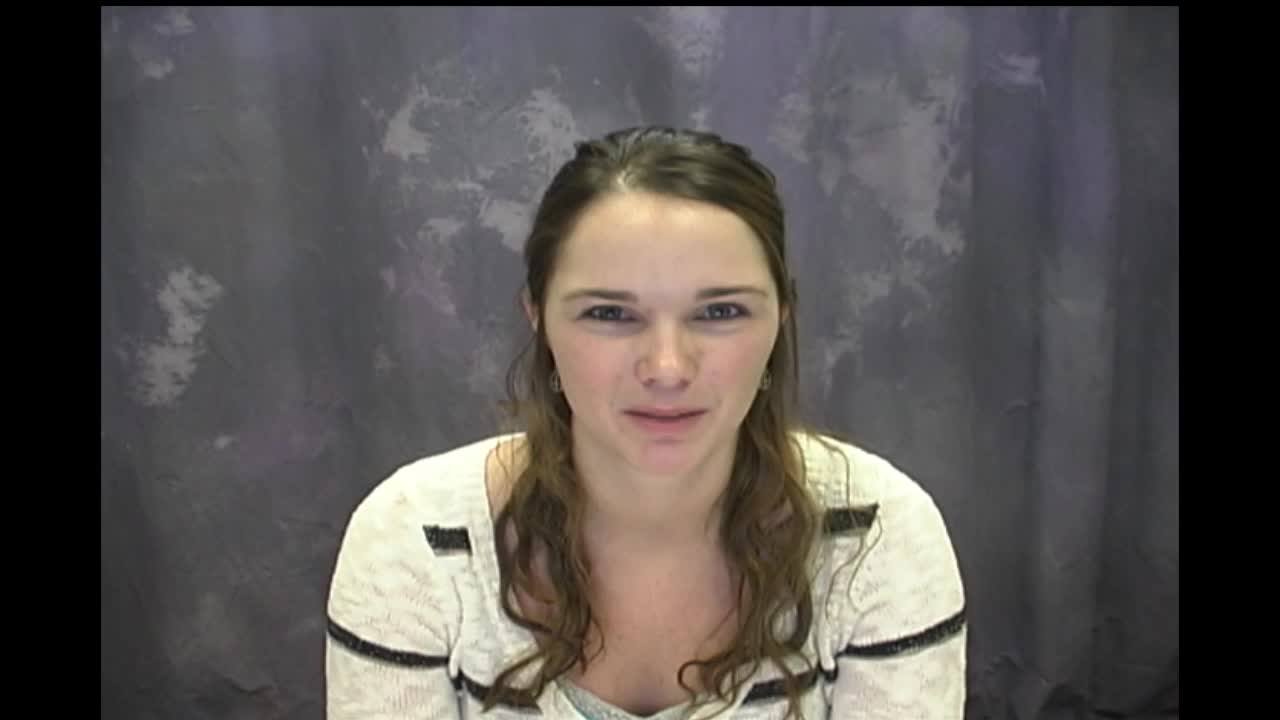
|
| |
-
EE 2260 - Fundamentals of Electrical Circuits Credits: (4)
Typically taught:
Spring [Full Sem]
Fundamental electric-circuit techniques including: time domain transient responses for 1st and 2nd order circuits, Laplace transforms, Fourier series, and filters. Lecture and lab combination. Prerequisite: EE 1270 and MATH 1220 .
 
|
| |
-
EE 2700 - Digital Circuits Credits: (4)
Typically taught:
Spring [Full Sem]
An introduction to digital electronics, integrated circuits, numbering systems, Boolean algebra, gates, flip-flops, multiplexers, sequential circuits, combinational circuits, and computer architecture. Introduction to hardware description language and programmable logic devices. Lecture and lab combination. Laboratory activities to include the design, construction, analysis, and measurement of basic digital systems. Co-Requisite: (Recommend) CS 2250 or CS 1410 .
 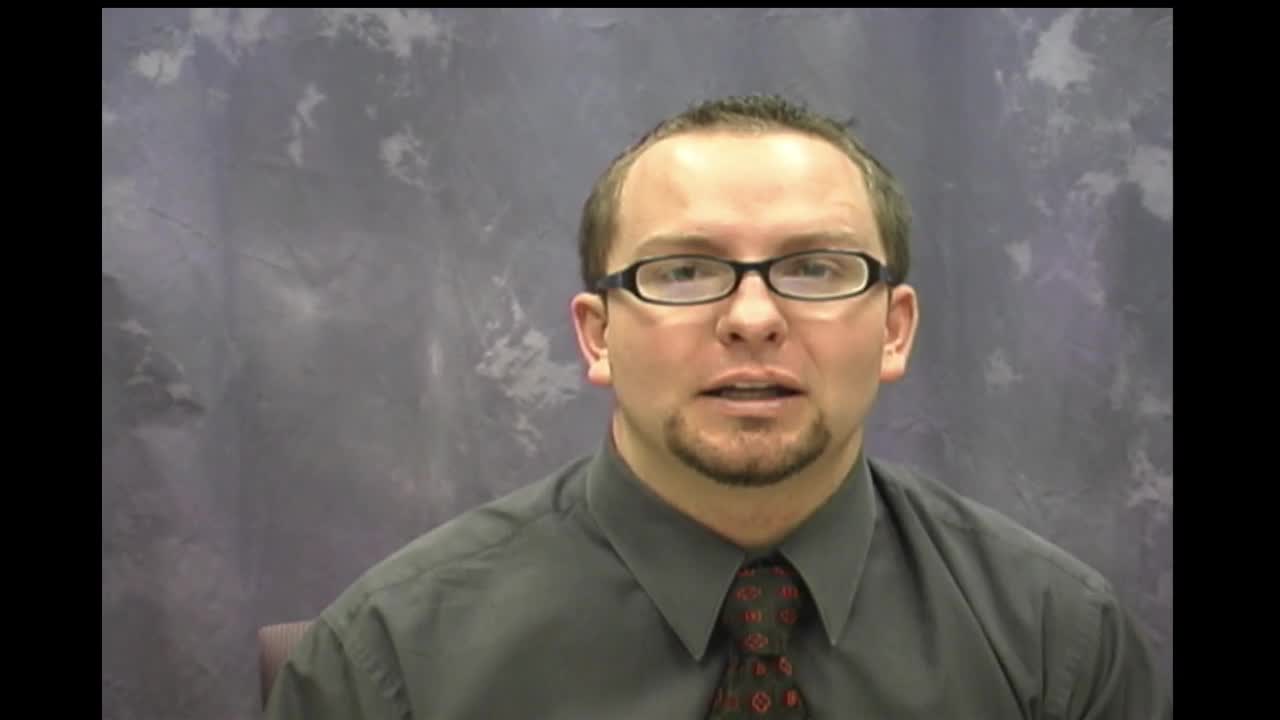
|
| |
-
EE 3000 - Engineering Seminar Credits: (1)
Typically taught:
Fall [Full Sem]
An engineering seminar course designed to prepare the student for professional engineering employment. Topics to include resumes, hiring criteria, interviewing techniques, engineering ethics, professional and societal responsibilities, lifelong learning, diversity, creative problem solving, goals, quality, timeliness, and continuous improvement. The students will research related topics and write a paper. Prerequisite: EE 1270 .
 
|
| |
-
EE 3110 - Microelectronics I Credits: (4)
Typically taught:
Fall [Full Sem]
Fundamental semiconductor device characteristics including diodes, MOSFETs and bipolar transistors; small and large signal characteristics and design of linear circuits. Lecture and lab combination. Laboratory activities to include the design, construction, computer simulation, and analysis of semiconductor circuits, amplifiers and power supplies. Prerequisite: CHEM 1210 and EE 2260 .
 
|
| |
-
EE 3120 - Microelectronics II Credits: (4)
Typically taught:
Spring [Full Sem]
Intermediate topics related to microelectronics including differential and multistage amplifiers, frequency response, feedback systems, power amplifiers, filters, and signal generation. Lecture and lab combination. Laboratory activities to include the design, construction, computer simulation, and analysis of filters and advanced circuits. Prerequisite: EE 3110 .
 
|
| |
-
EE 3210 - Signals and Systems Credits: (4)
Typically taught:
Fall [Full Sem]
Topics related to the analysis of linear time invariant continuous and discrete systems and signal transformations, convolution, frequency spectra, Laplace transforms, Z transforms, and fast Fourier transforms. Lecture and lab combination. Laboratory activities to include the computer simulation, analysis, and numerical modeling of signals and systems. Prerequisite: EE 2260 and MATH 2250 or MATH 2270 and MATH 2280 .
 
|
| |
-
EE 3310 - Electromagnetics I Credits: (4)
Typically taught:
Spring [Full Sem]
An introduction to electrostatics, magnetostatics and Maxwell’s equations with specific applications to wave propagation and transmission line theory. Lecture and lab combination. Laboratory activities to include the design, construction, and analysis of RF radar subsystems. Prerequisite: MATH 2210 , PHYS 2220 , and EE 2260 .
 
|
| |
-
EE 3610 - Digital Systems Credits: (4)
Typically taught:
Fall [Full Sem]
Introduction to microprocessor architecture, arithmetic logic units, memory systems, input/output interfaces, peripheral devices, and communication. Lecture and lab combination. Laboratory activities to include the programming and operation of microprocessor circuits. Prerequisite: EE 2700 and CS 2250 or CS 1410 .
 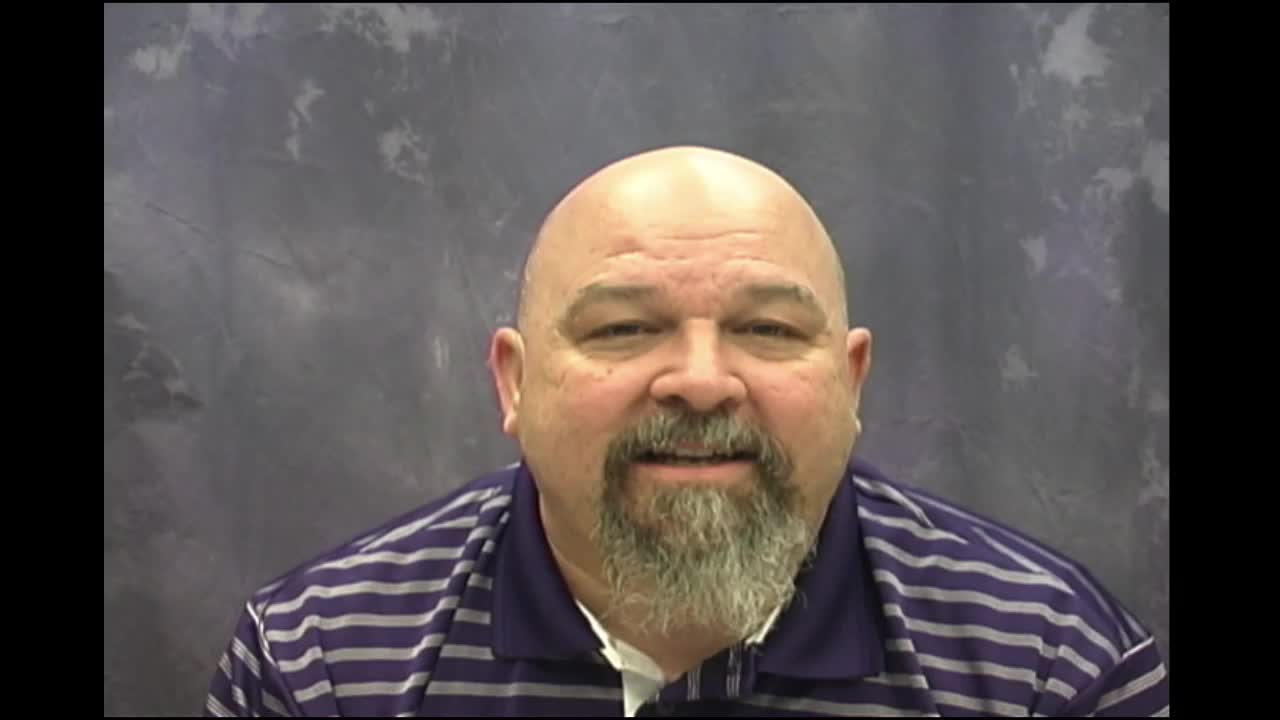
|
| |
-
EE 3710 - Embedded Systems Credits: (4)
Typically taught:
Spring [Full Sem]
Design and implementation of a microcontroller or microprocessor embedded system including assembly language programming, interfacing to peripherals, interrupt handling and debugging techniques. Lecture and Lab. Laboratory exercises build toward a final embedded systems project. Prerequisite: EE 2700 , and CS 2250 or CS 1410 .
 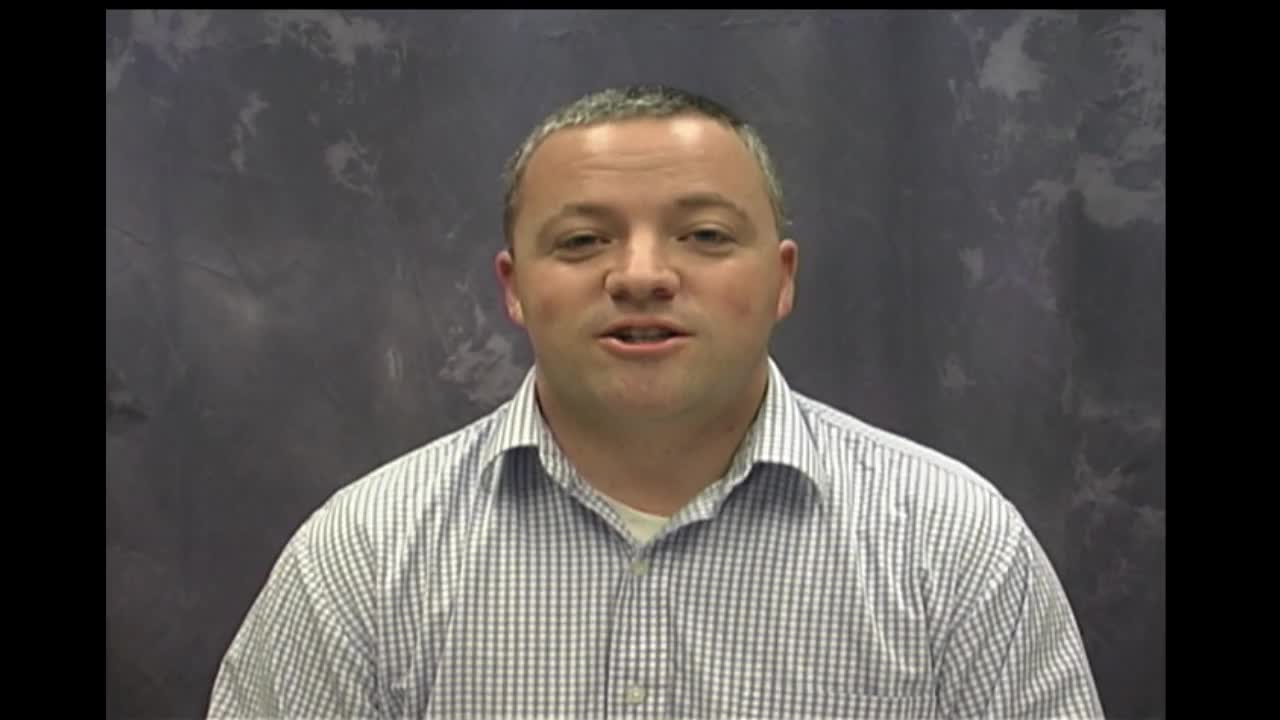
|
| |
-
EE 3890 - Internship Credits: (2)
Typically taught:
Fall [Full Sem]
Spring [Full Sem]
Summer [Full Sem]
This is a core course that is required for the BS Engineering degree. EE 3890 can be taken a maximum of three times for a total of six credits, but only two credits count toward the major. The student will need department approval before being allowed to register. Prerequisite: Permission from the department.
 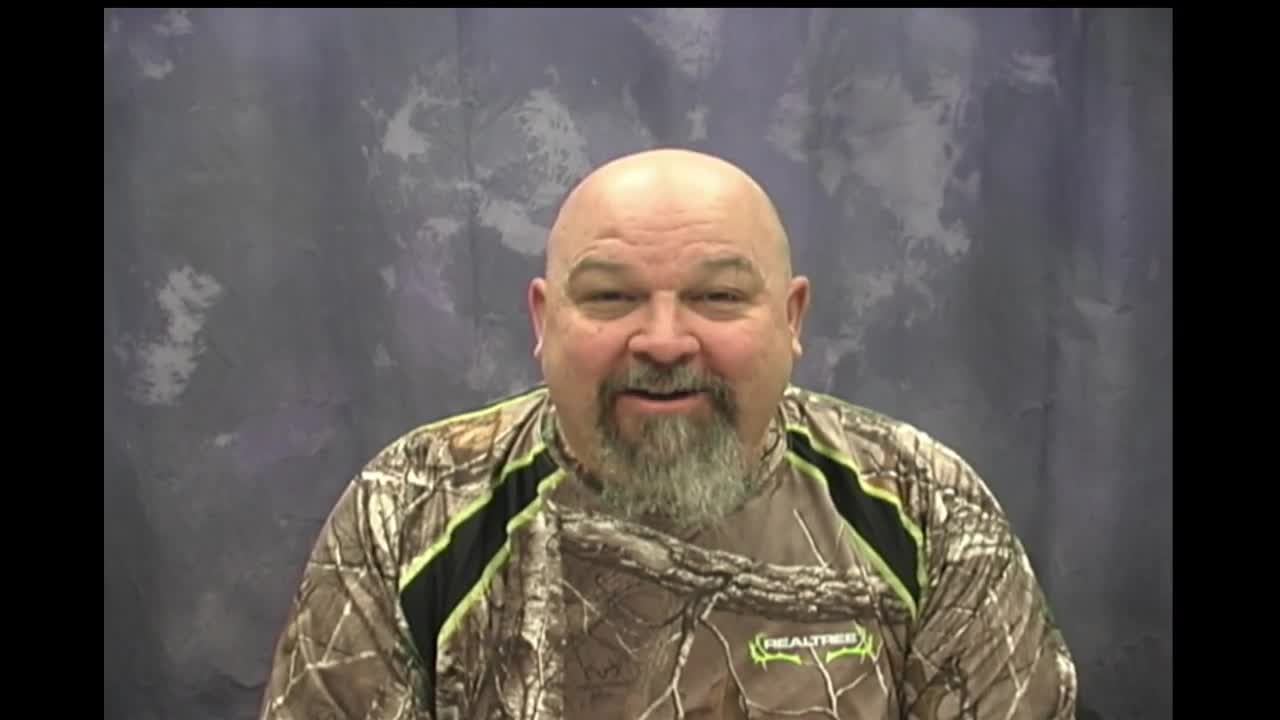
|
| |
-
EE 4010 - Senior Project I Credits: (2)
Typically taught:
Fall [Full Sem]
Spring [Full Sem]
Students will be required to complete a 200-hour engineering project in a team environment. Project management and problem solving techniques will be emphasized. Topics to include goal setting, developing milestone charts, writing contracts, conducting research, project design and construction, testing and analysis, project documentation, and design review presentations. Prerequisite: Permission from the department.
 
|
| |
-
EE 4020 - Senior Project II Credits: (2)
Typically taught:
Spring [Full Sem]
Fall [Full Sem]
A continuation of Senior Project I. Students will be required to complete a significant engineering project in a team environment. Project management and problem solving techniques will be emphasized. Topics to include goal setting, developing milestone charts, writing contracts, conducting research, project design and construction, testing and analysis, project documentation, and design review presentations. Prerequisite: EE 4010 .
 
|
| |
-
EE 4100 - Control Systems Credits: (4)
Typically taught:
Fall [Full Sem]
Topics related to control theory, analysis, and testing of systems in the time domain, frequency domain and state space. Lecture and lab combination. Prerequisite: EE 3120 and EE 3210 .
 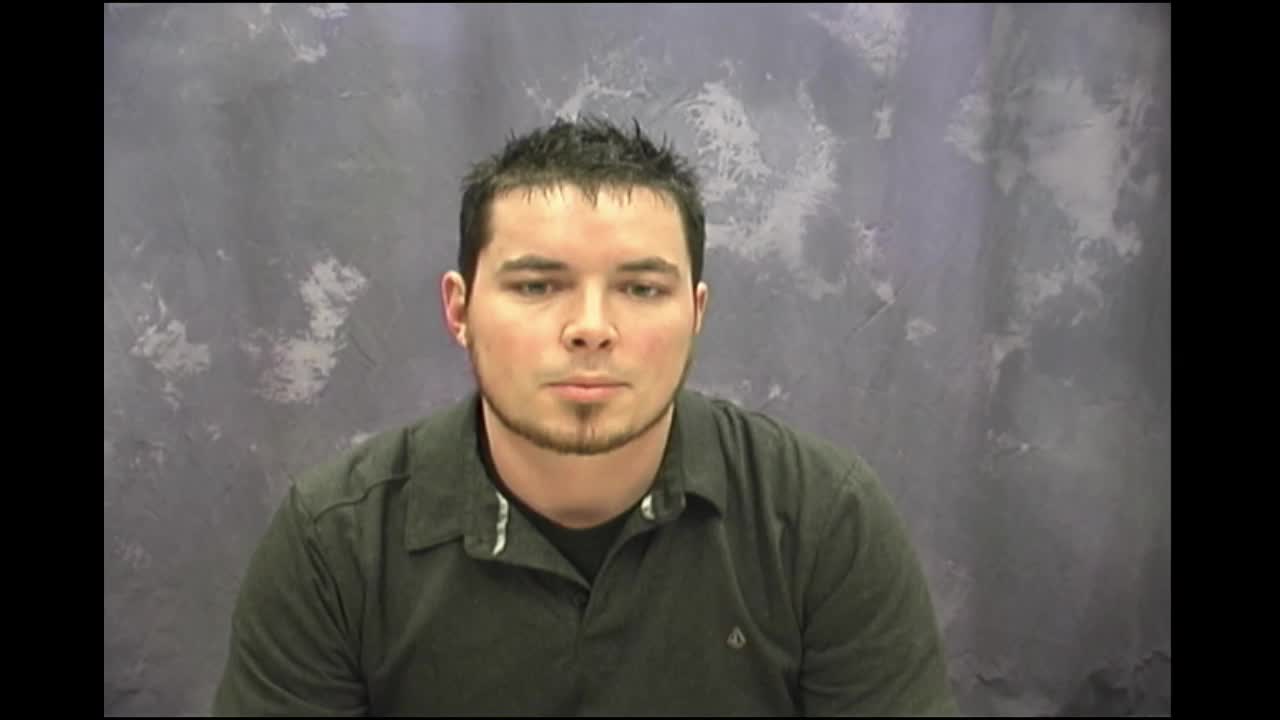
|
| |
-
EE 4210 - Digital Signal Processing Credits: (3)
Typically taught:
Summer [Full Sem]
Theory, application, and implementation of digital signal processing (DSP) concepts, from the design and implementation perspective. Topics include: Fast Fourier transforms, adaptive filters, state-space algorithms, random signals, and spectral estimation. Prerequisite: EE 3210 .
 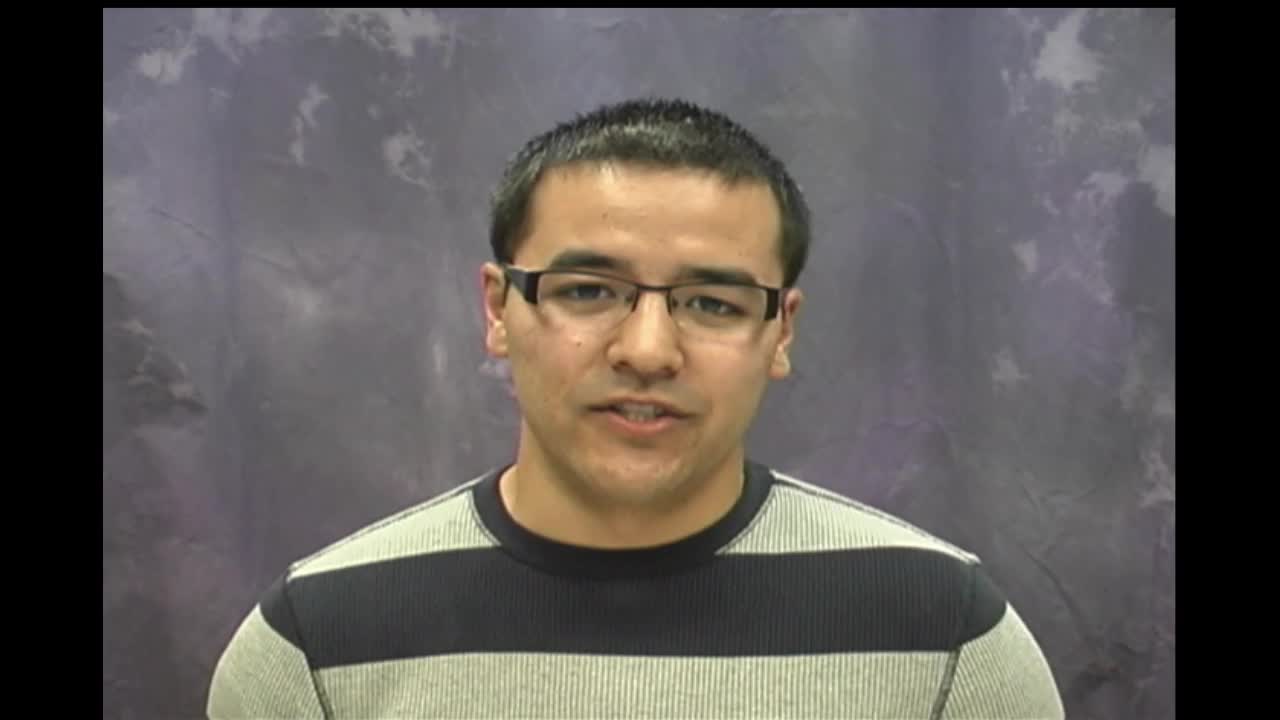
|
| |
-
EE 4310 - Electromagnetics II Credits: (3)
Typically taught:
Spring [Full Sem]
A study of intermediate electromagnetic issues common to circuits, systems, and communication networks. Prerequisite: EE 3310 .
|
| |
-
EE 4410 - Communication Circuits and Systems Credits: (3)
Typically taught:
Fall [Full Sem]
A study of communication circuits, modulation and decoding theory, spectrum usage, networks, and protocols. Prerequisite: EE 3210 and MATH 3410 .
 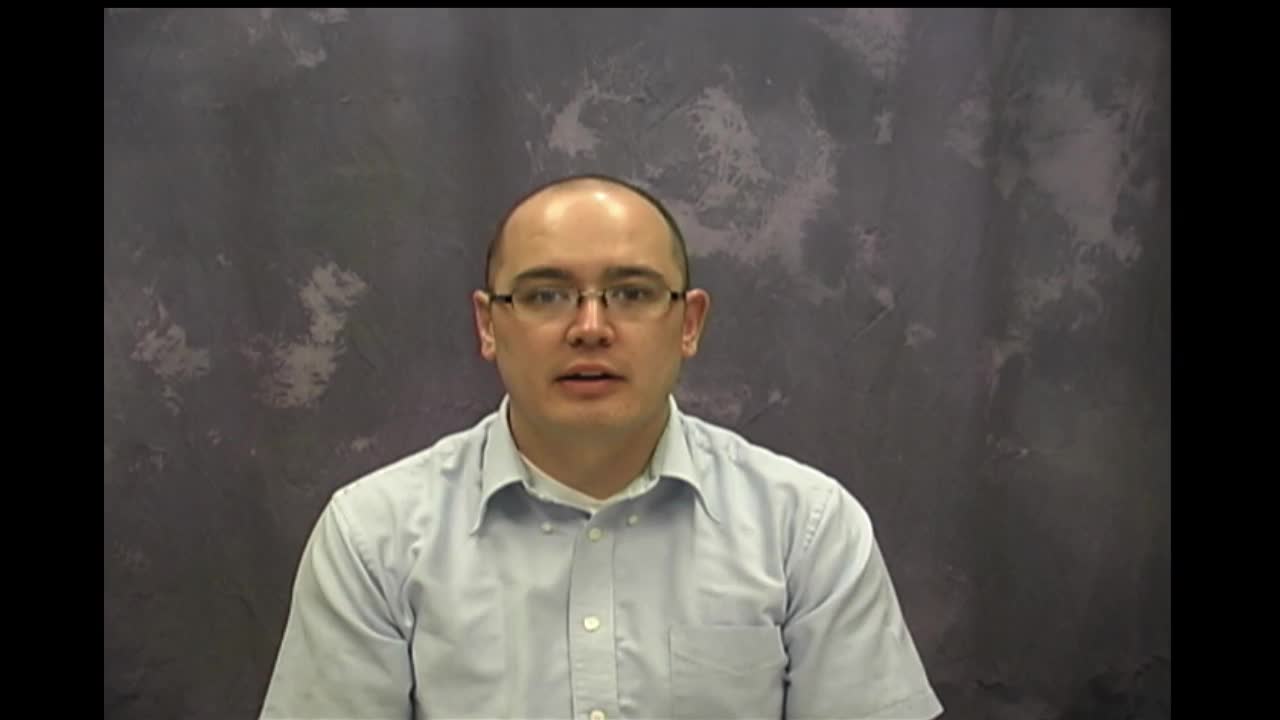
|
| |
-
EE 4510 - Power Systems Credits: (4)
Typically taught:
Spring [Full Sem]
A study of AC and DC power systems and machines, including single and 3-phase power, power factor and correction, transformers, synchronous and induction machines, DC motors, power transmission lines, and analysis of power flow and faults. Lecture and Lab combination. Prerequisite: EE 2260 . Prerequisite/Corequisite: EE 3310 .
|
| |
-
EE 4710 - Real-Time Embedded Systems Credits: (4)
Typically taught:
Fall [Full Sem]
An advanced course on real-time embedded system design. Topics include task concurrency, scheduling paradigms, synchronization, resource access control, and inter-process communication. Lecture and Lab combination. Prerequisite: EE 3710 .
|
| |
|
| |
-
EE 4900 - Special Topics Credits: (1-4)
A one-time special study course designed to introduce a new relevant topic that is not covered in the Electrical & Computer Engineering programs. Lecture and lab combination. Laboratory activities support the selected course topic. A maximum of four credits can be counted for the Electrical & Computer Engineering programs.
|
| |
-
EE 6010 - Design Project Credits: (2-6)
Students are required to complete a substantial engineering design project. Students must demonstrate proficiency in research, design, analysis, project planning, implementation, testing, presentation and documentation. Students must be enrolled when defending their project and documentation in a final design review. Prerequisite: Permission from the department. May be repeated up to 6 credit hours.
|
| |
-
EE 6110 - Digital VLSI Design Credits: (3)
Introduction to Digital VLSI design. Includes the development of standard cell library of common CMOS circuits. Use of hardware description language and CAD tools for the design and simulation of custom large-scale digital systems. Students will understand the impacts and tradeoffs from speed, power consumption, and thermal properties of large-scale custom ICs. Prerequisite: EE 3610 .
|
| |
-
EE 6120 - Advanced VLSI Design Credits: (3)
Design of stable asynchronous VLSI systems. Course includes design, modeling, synthesis, optimization, and verifcation of asynchronous circuits and large-scale systems. Students will develop custom asynchronous libraries and utilize them for system design utilizing CAD programs. Prerequisite: EE 3610 .
|
| |
-
EE 6130 - Advanced Semiconductor Devices Credits: (3)
Introduction to advanced semiconductor physics and devices. Topics include carrier transport theory, energy band diagrams, PN junctions, metal-semiconductor junctions, BJTs and MOSFETs. Study of current semiconductor process technologies and discussion of off-roadmap technologies. Prerequisite: PHYS 2220 and EE 3110 .
|
| |
-
EE 6210 - Digital Signal Processing Credits: (3)
Theory, application, and implementation of digital signal processing (DSP) concepts, from the design and implementation perspective. Topics include: Fast Fourier transforms, adaptive filters, state-space algorithms, random signals, and spectral estimation. Prerequisite: EE 3210 .
|
| |
-
EE 6220 - Image Processing Credits: (3)
Advanced image processing theory and methods. Topics include digital image formation, transformation, filtering, enhancements, segmentation and morphological processing. Lectures, computer assignments and project (including term paper). Prerequisite: EE 3210 .
|
| |
-
EE 6410 - Communication Circuits and Systems Credits: (3)
A study of communication circuits, modulation and decoding theory, spectrum usage, networks, and protocols. Prerequisite: EE 3210 and MATH 3410 .
|
| |
-
EE 6420 - Digital Communication Credits: (3)
This course provides an in-depth coverage of the theory, analysis, and design of digital communications systems with an emphasis on advanced topics related to wired, wireless data communication and the physical networking layer. Topics include QPSK, QAM, PAM, CSMA/CD, SONET, ADSL, and/or MACAW. Spread spectrum concepts such as FHSS, DSSS, OFDM, MIMO and/or cooperative communication techniques may be included. Students will develop Matlab based models to emulate the concepts. The course will include group projects as well as individual assignments. The course would be beneficial particularly to students who are interested in doing work/research in fields related to communications, networks, and signal processing. Prerequisite: EE 3210 and MATH 3410 .
|
| |
-
EE 6710 - Real-Time Embedded Systems Credits: (4)
An advanced course on real-time embedded system design. Topics include task concurrency, scheduling paradigms, synchronization, resource access control, and inter-process communication. Lecture and Lab combination. Prerequisite: EE 3710 .
|
| |
-
EET 1110 - Basic Electronics Credits: (2)
Typically taught:
Fall [Full Sem]
Spring [Full Sem]
Introduction to the concepts and fundamentals of electronic devices, circuits and systems. An electronics overview course for technology majors. Topics include direct current electricity, alternating current electricity, transistors and integrated circuits, amplifiers and oscillators, transmitters and receivers, digital logic circuits, electronic memory, and computers. Prerequisite: Credit for or concurrent enrollment in MATH 1010 or higher.
|
| |
-
EET 1130 - Digital Systems Credits: (4)
Typically taught:
Fall [Full Sem]
Introduction to digital electronics, integrated circuits, numbering systems, Boolean algebra, gates, flip-flops, multiplexers, sequential circuits, combinational circuits, programmable logic devices, and computer architecture. Lecture and lab combination. Laboratory activities to include the design, construction, analysis, and measurement of basic digital systems. Prerequisite: Credit for or concurrent enrollment in MATH 1010 or equivalent or any higher math.
|
| |
-
EET 1140 - DC Circuits Credits: (3)
Typically taught:
Spring [Full Sem]
Introduction to DC circuit fundamentals, analysis, theorems, laws, components, measuring devices, and equipment. The introduction and use of measuring instruments and power supplies. Lecture and lab combination. Laboratory activities to include circuit design, construction, and analysis of DC circuits. Prerequisite: EET 1110 and credit for or concurrent enrollment in MATH 1060 or MATH 1080 or any higher math.
|
| |
-
EET 1850 - Industrial Electronics Credits: (4)
Typically taught:
Spring [Full Sem]
Industrial electronics course for Mechanical and Manufacturing Engineering Technology majors. Introduction to DC and AC circuits, machines, and power systems. Lecture and lab combination. Laboratory activities to include the design, construction, and analysis of DC/AC circuits and machinery. Prerequisite: MATH 1010 or equivalent or any higher math.
|
| |
-
EET 2010 - AC Circuits Credits: (3)
The course serves as an extension of circuit analysis methods taught in EET 1140 to AC networks. The introduction of complex numbers and phasor notation at the beginning of the course is followed by AC circuit analysis techniques and the determination of the frequency response for passive AC networks. The course is a combination of lecture and laboratory formats. Laboratory activities will include the design, computer simulation, validation and analysis of passive AC networks. Prerequisite: EET 1140 and credit for MATH 1060 or MATH 1080 .
|
| |
-
EET 2110 - Semiconductor Circuits Credits: (4)
Typically taught:
Fall [Full Sem]
Introduction to the design and analysis of semiconductor circuits using diodes, transistors, op-amps, field effect devices, thyristors, and regulators. Lecture and lab combination. Laboratory activities to include the design, construction, computer simulation, and analysis of semiconductor circuits, amplifiers and power supplies. Prerequisite: EET 1130 , EET 1140 , MATH 1060 or higher.
|
| |
-
EET 2120 - Power and Motors Credits: (4)
Typically taught:
Fall [Full Sem]
Introduction to AC and DC motors, relays, transformers, power measurements, National Electrical Code, ladder logic, wiring, and programmable logic controllers (PLCs). Lecture and lab combination. Laboratory activities to include the design, construction, and analysis of basic power circuits and machinery configurations. Prerequisite: EET 1140 , MATH 1060 or higher.
|
| |
Page: 1 <- 5
| 6
| 7
| 8
| 9
| 10
| 11
| 12
| 13
| 14
| 15
… Forward 10 -> 35 |